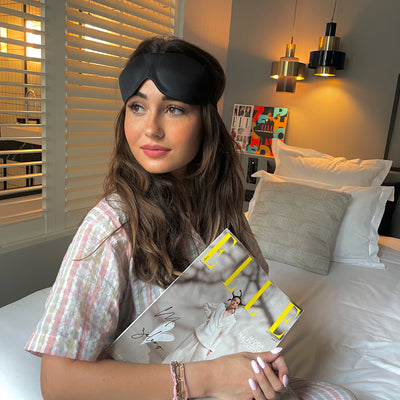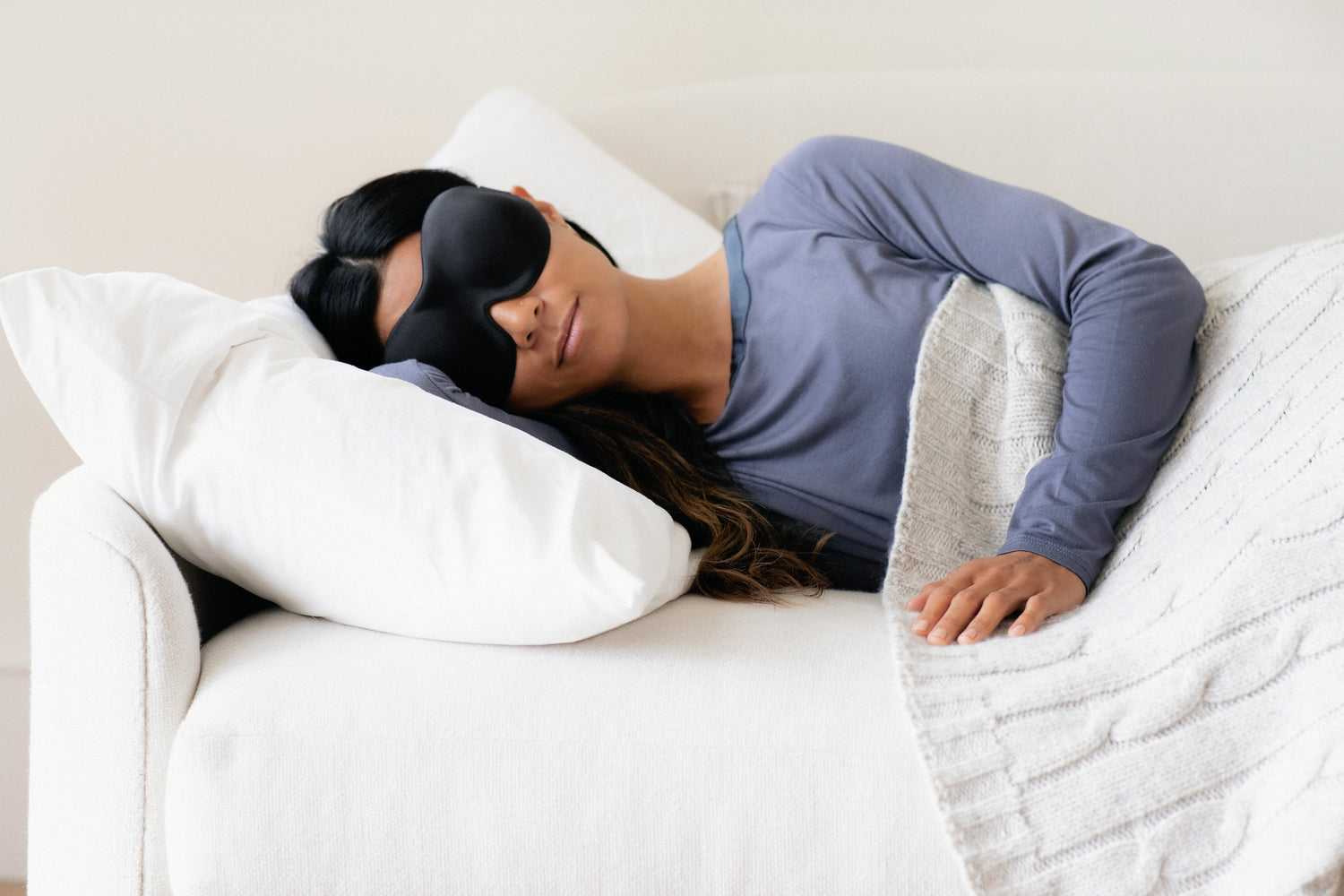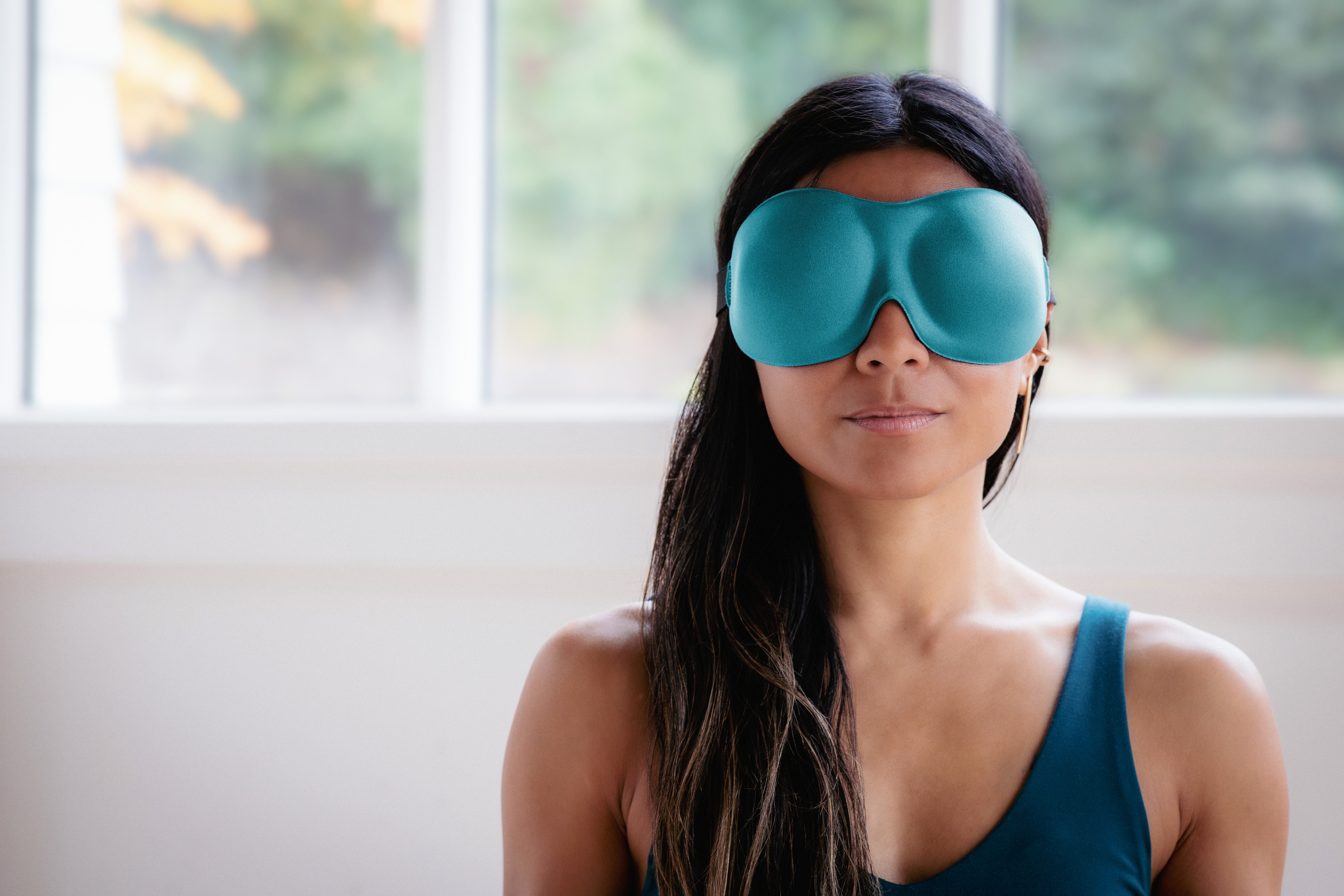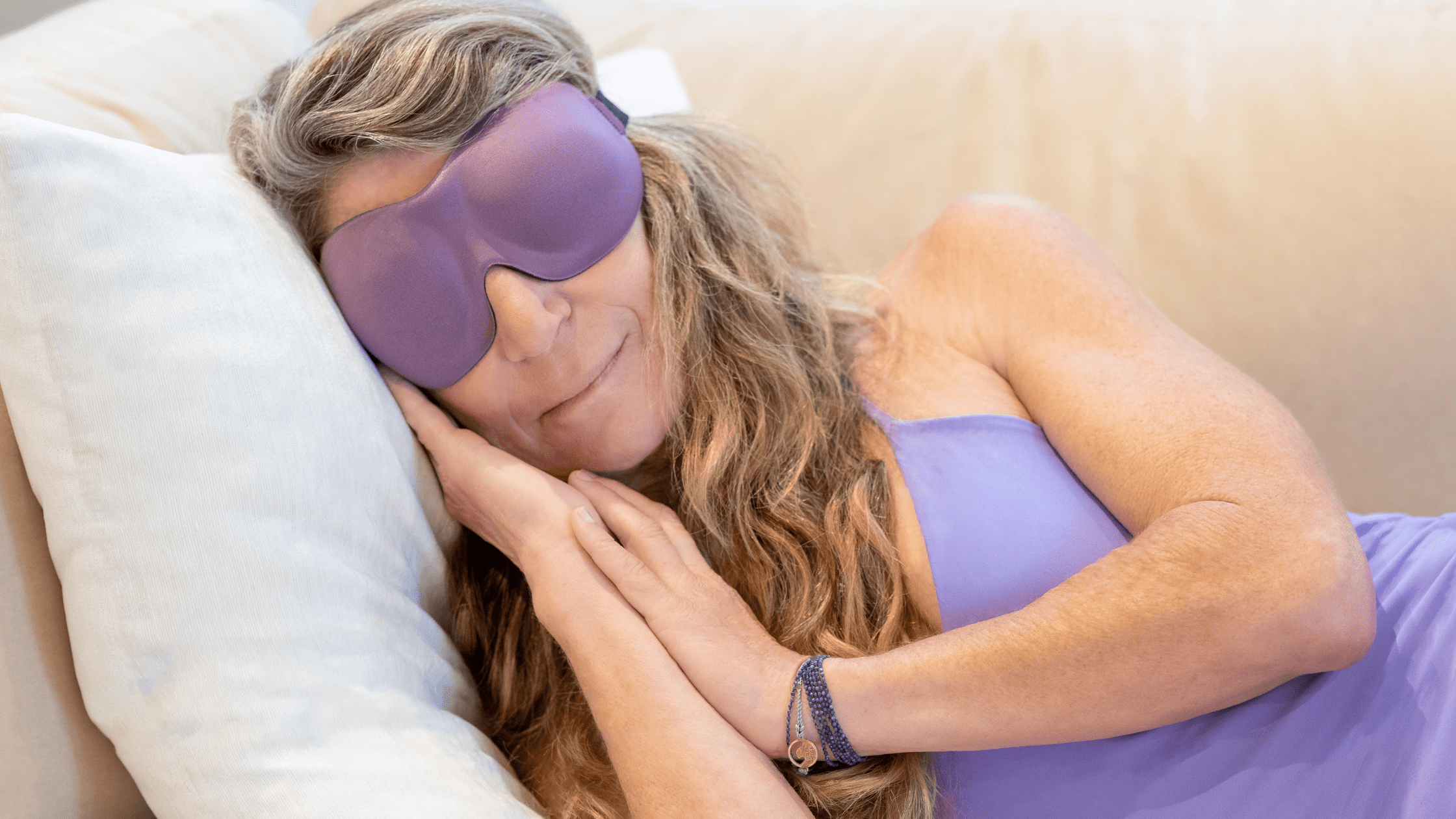If you are chasing growth, leading teams, and making high-stakes decisions, steady energy is your biggest asset. Yet many professionals still try to push through chronic fatigue.
The fastest path to burnout recovery sleep is not another productivity hack. It is a deeper, more consistent rest. That is why a high-quality, stress-reducing sleep mask can be a small change with a significant impact.
In this guide, we connect the dots between darkness, better sleep, and Nidra executive wellness.
Why Poor Sleep Fuels Burnout
Burnout rarely arrives overnight. It builds up short sleep and nighttime wakeups, chipping away at focus, patience, and mood.
When you sleep less than your body needs, stress hormones can stay elevated. That makes small problems feel bigger and turns simple tasks into uphill climbs. Decision fatigue typically sets in earlier in the day. Reactivity replaces perspective.
Cognitive performance is one of the first casualties. Shallow or shortened sleep limits memory consolidation, learning, and creative problem-solving. You might notice meetings feel foggier or that complex tasks take longer than they should.
A large meta-analysis confirms that short-term sleep loss impairs attention, working memory, and other executive functions that busy leaders depend on.¹
The strain shows up physically, too. Muscles recover more slowly, cravings spike, and afternoon slumps deepen.
All of this forms a loop that keeps you stressed and under-rested. Quality sleep is the interrupter. It lowers the internal noise that fuels anxiety, restores self-control, and recharges attention.
For leaders who must show up calm and clear, high-quality rest is not a luxury. It is the most reliable performance tool you own. The connection with burnout is well-documented, with evidence showing a moderate correlation between sleep problems and burnout symptoms.²
How Darkness Improves Recovery
Light is information. When your eyes detect light at night, your brain reads it as a cue to stay awake. That includes overhead lights, bedside lamps, streetlights, early morning sun, and even the tiny LEDs on chargers.
Experimental work shows that ordinary room light before bed suppresses melatonin and shifts internal timing, which makes it harder to fall asleep and stay asleep.³
Total darkness sends the opposite signal.
It helps your body release sleep-friendly hormones, nudges your core temperature in the right direction, and supports longer periods of deep and REM sleep. Those phases are closely tied to physical repair, emotional regulation, and the next day's sharpness.
In a lab setting that mimicked hospital noise and light, blocking light with an eye mask, paired with earplugs, preserved melatonin and improved sleep compared with no protection.⁴
A well-designed sleep mask is a simple way to create real darkness anywhere. It blocks stray light that curtains and hotel shades miss. It protects your sleep window during travel, power naps, and early sunrise. It does not require remodeling your bedroom or negotiating about blackout curtains.
It is personal, portable, and immediate.

Darkness that travels with you
Executives and frequent flyers face irregular hours, time zones, and unfamiliar rooms. A reliable mask turns planes, rideshares, and bright hotel rooms into controllable environments.
Five minutes of quiet with a full blackout before a presentation can be the difference between being scattered and being centered. Recent research even shows that wearing a light-blocking mask overnight can improve next-day alertness and memory encoding in healthy adults.⁵
Nidra Sleep Masks: A Small Change with Big Results
Nidra was built for people who care about both performance and comfort. Our contoured design creates a gentle dome over your eyes, so there is zero pressure on lids or lashes.
That contour is the key to full blackout without the weight. The result is darkness you do not have to think about and comfort you barely notice.
What sets Nidra apart
- True blackout fit, without pressure: The molded eye cups seal out light while keeping space around your eyes. No smudged makeup. No lash contact.
- Lightweight, breathable materials: Soft, skin-friendly fabrics that feel cool and smooth, even for side sleepers.
- Adjustable, stay-put strap: A secure, customizable fit that stays in place through position changes.
- Durable construction for daily use: Quality stitching and long-lasting materials that hold up to travel and nightly wear.
- Travel-ready: Packs flat, weighs very little, and works anywhere you need reliable darkness.
The performance benefits are practical and immediate. With consistent blackout, many people fall asleep faster, wake less often, and return to sleep more easily.
That steadier sleep supports calmer mornings, clearer thinking, and better recovery from intense workdays.
For burnout recovery sleep, this is a small habit that compounds.

How to get the most out of your mask
-
Use it for wind down: Put the mask on for five quiet minutes before bed to lower stimulation.
-
Protect the last hour: Dim screens and lights, then add your mask when you are ready to sleep.
-
Rescue your midnight wakeups: If you wake at 3 a.m., avoid turning on lights. Mask back up and focus on slow breathing.
-
Power nap for clarity: Ten to twenty minutes at midday can restore focus. The mask shortens the time it takes to drift off.
-
Travel protocol: On flights, pair the mask with simple earplugs. When you land, get daylight on your eyes, then mask for a short nap if needed.
A calmer mind starts at night
A stress reduction sleep mask is not a cure-all.
It is a lever that works with your biology. Darkness makes it easier to sleep. Better sleep makes it easier to regulate stress. Better regulation improves performance and resilience. Layer in a consistent bedtime, a cool room, and a short breath practice, and you have a steady foundation for Nidra executive wellness.

Quick Routine: Five Minutes to Reset
If the day spirals, try this simple reset.
-
Find a quiet spot, sit back, and put on your Nidra mask.
-
Inhale for four counts, hold for four, exhale for six, then pause for two. Repeat for five rounds.
-
Notice your jaw and shoulders soften.
-
Remove the mask, stand up, and take one slow walk to refill water.
This micro routine reduces visual input, eases tension, and returns you to your next task steadier and more focused. It complements the core habit that matters most, consistent, high-quality sleep.
FAQs
Do sleep masks really help with stress?
They help indirectly. By creating darkness, you fall asleep faster and sleep more deeply. Better sleep supports calmer moods, improved focus, and more resilient reactions to stressors. Evidence shows that an eye mask can boost next-day alertness and learning in everyday conditions.⁵
Can I use a mask with contact lenses or lash extensions?
Yes. Nidra’s contoured eye cups avoid direct contact with lids and lashes. Many customers choose it specifically for that reason.
Will a mask make me too dependent?
Think of it as a tool. You are training your body to associate darkness with rest. Over time, your sleep system becomes more reliable, not less.
What if my bedroom already feels dark enough?
Even small light leaks can disturb sleep stages. A well-fitting mask is an easy insurance policy, and it is ideal for travel or early sunrise. The goal is consistent, predictable darkness every night.³
Footnotes
-
Julian Lim and David F. Dinges, “A Meta Analysis of the Impact of Short Term Sleep Deprivation on Cognitive Variables,” Psychological Bulletin 136, no. 3, 2010, 375–389, doi:10.1037/a0018883. Perelman School of Medicine
-
María José Membrive Jiménez et al., “Relation between Burnout and Sleep Problems in Nurses, A Systematic Review with Meta Analysis,” Healthcare 10, no. 5, 2022, 954, doi:10.3390/healthcare10050954. MDPI
-
Joshua J. Gooley et al., “Exposure to Room Light before Bedtime Suppresses Melatonin Onset and Shortens Melatonin Duration in Humans,” Journal of Clinical Endocrinology & Metabolism 96, no. 3, 2011, E463–E472, doi:10.1210/jc.2010 2098. Oxford Academic
-
Rong fang Hu et al., “Effects of Earplugs and Eye Masks on Nocturnal Sleep, Melatonin and Cortisol in a Simulated Intensive Care Unit Environment,” Critical Care 14, 2010, R66, doi:10.1186/cc8965. BioMed Central
-
Valentina Greco et al., “Wearing an Eye Mask during Overnight Sleep Improves Episodic Learning and Alertness,” Sleep 46, no. 3, 2023, zsac305, doi:10.1093/sleep/zsac305.






Leave a comment
This site is protected by hCaptcha and the hCaptcha Privacy Policy and Terms of Service apply.